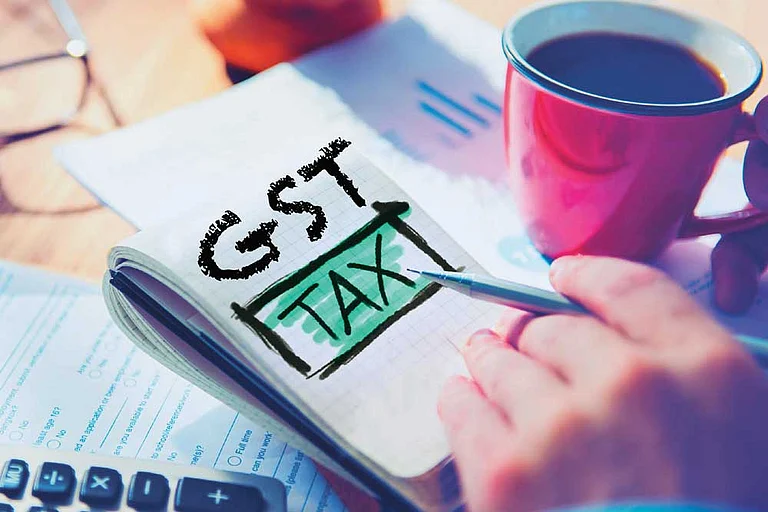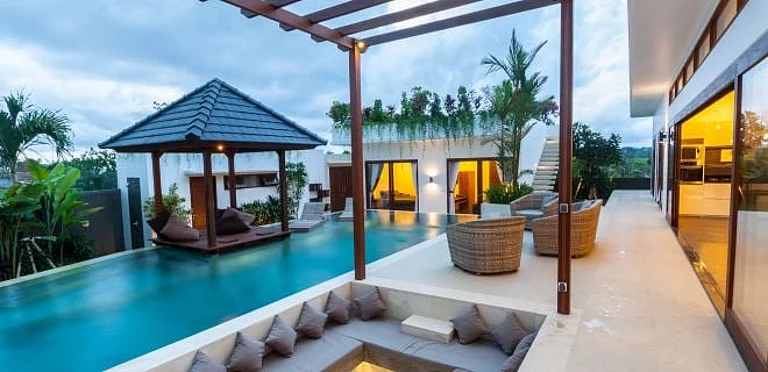Starting April 1, 2025, in-house restaurants in luxury hotels and resorts with room tariffs exceeding Rs. 7,500 per night will be subject to an 18 per cent Goods and Services Tax (GST) with input tax credit (ITC).
18% GST For Restaurants In Hotels With Rs 7,500-Plus Tariff; Industry Calls For Rollback Ahead Of Tourist Season
The Central Board of Indirect Taxes and Customs (CBIC) has directly linked GST rate on restaurants with room tariffs for luxury hotels. The hotel industry has called the GST structure controversial ahead of the upcoming tourist season, saying it will dent the business of luxury hotels and increase price for consumers
Such establishments with room tariffs exceeding Rs 7,500 will now be considered as “Specified Premises”. This change has been introduced by the Central Board of Indirect Taxes and Customs (CBIC), and is a shift from previous taxation rules governing the hospitality industry.
This move has sparked strong opposition from the hospitality industry. While the hotels will have to pay higher taxes, the room prices will also face a hike due to the additional GST.
Previous GST Rules For Hotels and Restaurants
Under the previous GST Rules (Before April 1, 2025), the GST rates for restaurants, (both standalone restaurants and those in hotels) was 5 per cent GST without ITC. This also applied for luxury hotels regardless of room tariffs. Alternatively, restaurants in luxury hotels could opt for 18 per cent GST with ITC, but most chose the lower 5 per cent rate to keep food prices competitive to thrive in the industry.
Likewise, the GST rate for hotels was taxed in two categories. One category came with 12 per cent GST for rooms priced between Rs 1,000 and Rs. 7,500, and 18 per cent GST for rooms above Rs 7,500. There was no direct link between GST rates on room tariffs and restaurant services — in-house restaurants in such hotels operated under general restaurant tax rules.
New GST Rate For Hotels and Restaurants (Effective April 1, 2025)
Now, the government has brought about a change in the GST rate for restaurants and GST rate for hotels. Under the new GST rules for hotels and restaurants, any hotel with a room tariff of Rs. 7,500 per night will have a GST rate of 18 per cent with ITC on their in-house restaurant menu even for dine-in guests.
If a hotel's room tariff is Rs. 7,500 or below, the GST rate on the restaurant will be 5 per cent GST without ITC.
The classification is based on past room pricing (previous year pricing), meaning even a temporary rate hike in the previous year could push a hotel into the higher tax bracket for its restaurant services.
How is the Status of Specified Premises Determined
The CBIC has stated that a hotel's classification as a "specified premises" for a financial year will be determined by the actual transaction value of hotel accommodations in the previous year and a voluntary declaration from the hotelier before the new financial year begins.
This classification will remain unchanged throughout the financial year.
Hotels that exceeded the Rs 7,500 per night threshold in 2024-25 will automatically be subject to an 18 per cent GST for restaurant services for FY 2025-26. Newly-registered hotels can opt for this status by submitting an opt-in declaration within 15 days of obtaining the GST registration.
Why GST Rules are Controversial
The hospitality industry has raised concerns over the new rule.
Unfair Link Between Room Tariffs and Restaurant GST: Previously, a hotel’s restaurant was taxed like any other restaurant, separate from room tariffs. Now, an increase in room pricing automatically forces a higher GST on restaurant services, making dining more expensive for everyone, even non-hotel guests.
Increased Cost for Consumers: Guests dining at in-house restaurants in luxury hotels and resorts will now pay 18 per cent GST, making food and beverages more expensive. Budget and mid-range hotels with in-house restaurants will continue to charge only 5 per cent GST, leading to price inconsistencies, which the industry has called unfair for the luxury hotel industry, as their competitors can undercut prices and still operate on thinner margins due to a lower GST. This may lead to huge losses for luxury hotels, as the GST hike is significant and is now directly linked with room tariff and dining.
Operational and Compliance Challenges for Hotels: Hotels must now keep detailed records of past room rates to determine the correct GST for their restaurants. A temporary surge in room tariffs, such as due to peak season demand could impact restaurant tax rates for an entire year resulting in a higher tax bracket. Managing multiple GST rates for different services within the same hotel adds unnecessary complexity.
During the holiday season, both hotel guests and diners will have to pay higher prices on restaurant services at these luxury hotels.
FHRAI's Appeal for a Fairer System
The Federation of Hotel & Restaurant Associations of India (FHRAI) has urged the government to reconsider this rule.
FHRAI has requested the government to de-link the restaurant GST from the room tariffs, further giving them the option to choose between 5 per cent GST without ITC or 18 per cent GST with ITC.
They have asked for a fairer approach where such in-house restaurants are taxed based on their revenue and operations, and not room pricing.
Potential Impact on the Hospitality Industry
Luxury Hotels Might Limit Room Tariff Increases: To avoid being put under the new category of “Specified Premises”, some hotels, which had decided on increasing tariffs may now purposely keep their room rates low to undercut prices of their competitors even during peak season.
More Expensive Dining in Premium Hotels: Guests dining at lavish in-house restaurants in luxury hotels will face increased prices for food, possibly leading to a shift in preferences of the customer, and could face lower footfalls.
Regulatory Burden on Hoteliers: Hotels will need careful pricing strategies to balance room rates and GST implications.
Can Hoteliers Opt To Be "Specified Premises"
Hoteliers can now categorise their properties as "specified premises" by submitting a declaration between January 1 and March 31 of the previous financial year. However they will have to replace the previous concept of 'declared tariff' which considered all amenities in the accommodation unit that excludes any discounts on published rates.
With industry opposition growing, it remains to be seen whether the government will reconsider this change.
For now, high-end hotels will need to adapt to a more expensive tax structure, potentially affecting both businesses and customers.




